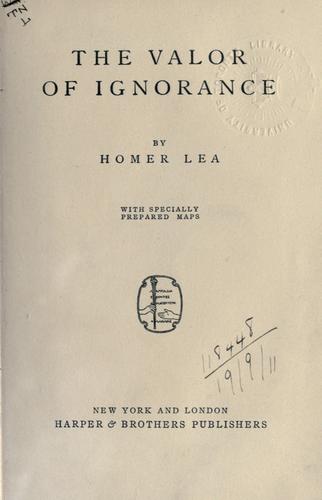Sun Tzu advised leaders to know the enemy as well as they know themselves. It’s sound advice … so sound that it’s rarely taken.
Lesson from World War II: Besides Mein Kampf, one opportunity to see into the enemy’s goals and fears before the war was a German book called Germany Prepares for War (1933), laying out its propaganda case for aggression. Another harbinger of events was the German and Japanese reaction to a set of books by the American expatriate Homer Lea. Two decades before World War II, Lea predicted the general outlines of the war along with weaknesses in American and British defenses.
Immediately after Pearl Harbor, American air war planners identified targets across the Reich, using documents drawn up to support industrial loans. The British used their own research efforts when organizing hundreds of deception operations. These shielded Allied efforts, wasted the enemy’s effort, and exploited weaknesses among the Axis. One of the most interesting was a plan dubbed “Headache for Der Fuerher,” which used faked communications to force the recall of a highly effective commander of a Panzer division in North Africa. The British did this by making the Gestapo believe that a disgraced German officer was sending secret, conspiratorial messages to the commander the British had targeted for removal.
Fortunately for people today who take Sun Tzu’s advice seriously, adversaries still reveal their agendas in books, articles, or speeches. Often these are written early in their careers, before they gain power. Or they are written by others. Jihadists swear by Sayyid Qutb’s Signposts and Abdel Salam Faraq’s Neglected Duty.
Those who wonder about Vladimir Putin’s plans should read his biography of 2000, Ot Pervogo Litsa: Razgovory s Vladimirom Putinym (“From the First Person, Vladimir Putin”). And even before that book and before taking power, back in graduate school, Putin wrote that he wanted to build a new empire founded on controlling access to energy, with a strong authoritarian figure at the center. The Caucasus is an energy corridor (what World War II theorists in logistic science called a “center of gravity”) and therefore is critical to that plan. To put a measure on Putin’s ambition, think of Peter the Great. His biography describes the significance of the Great Patriotic War in his family background, and his love of martial arts training (called sambo).


No comments:
Post a Comment